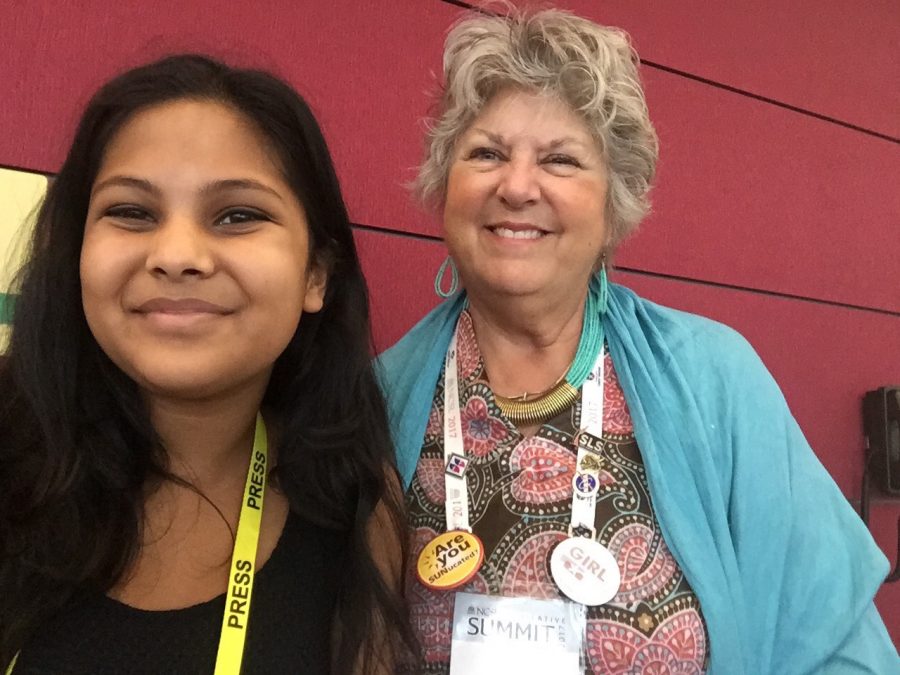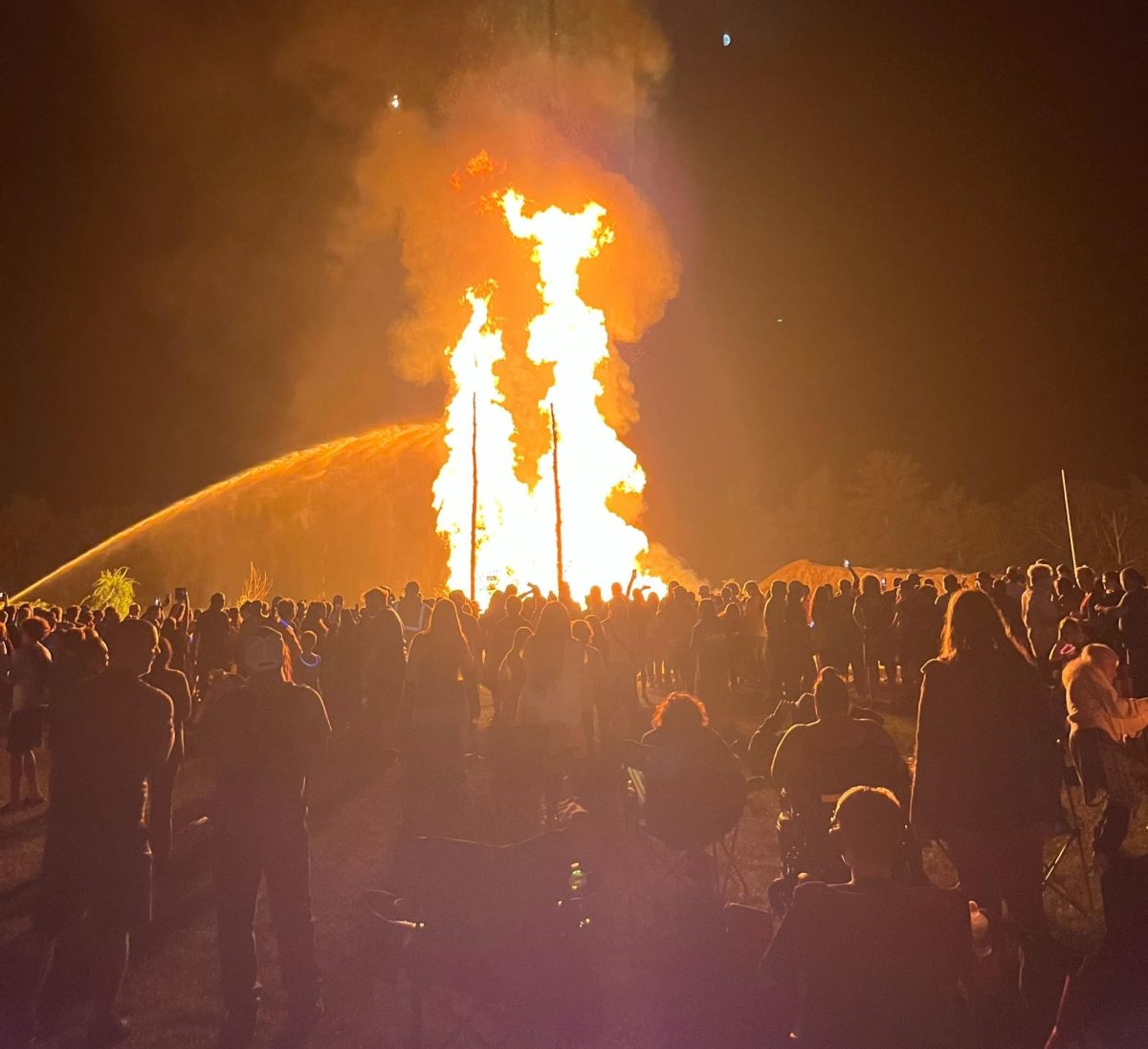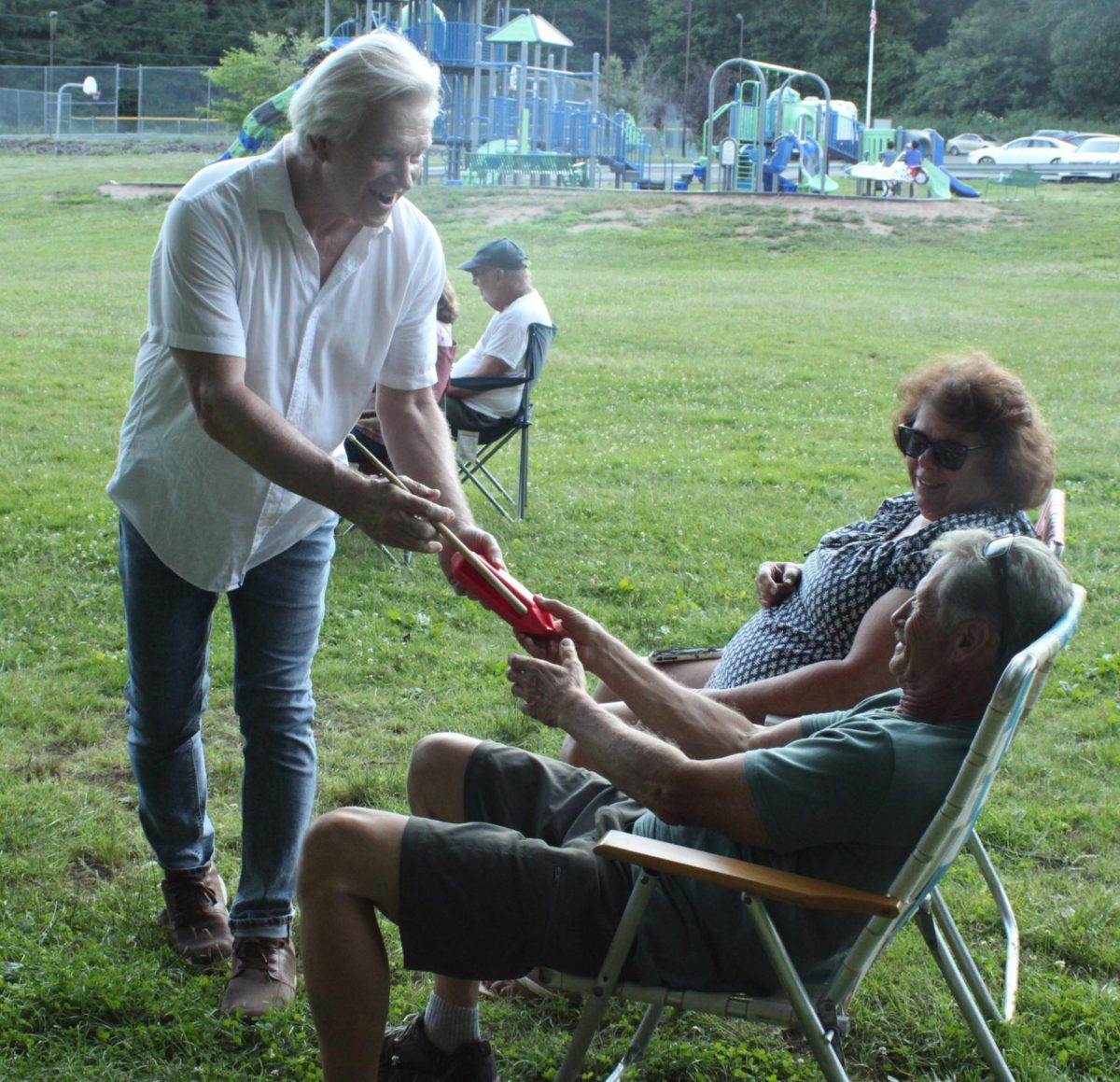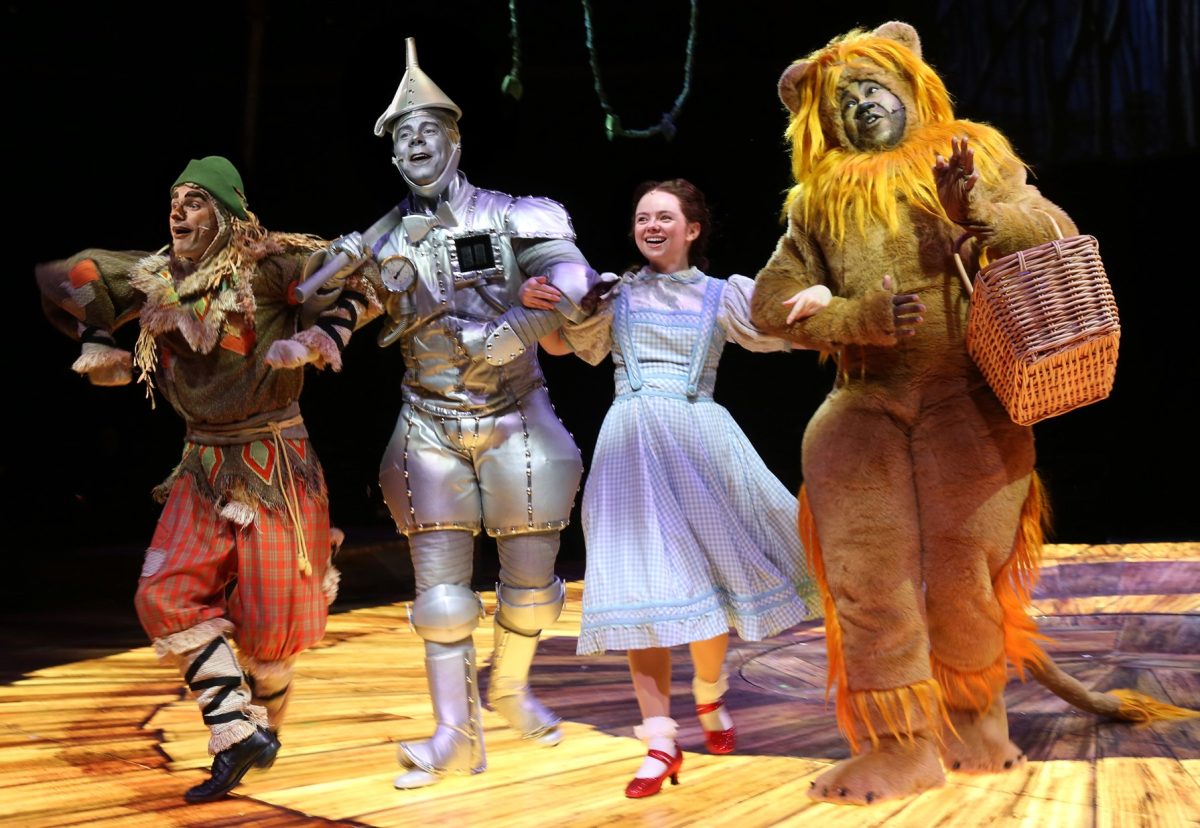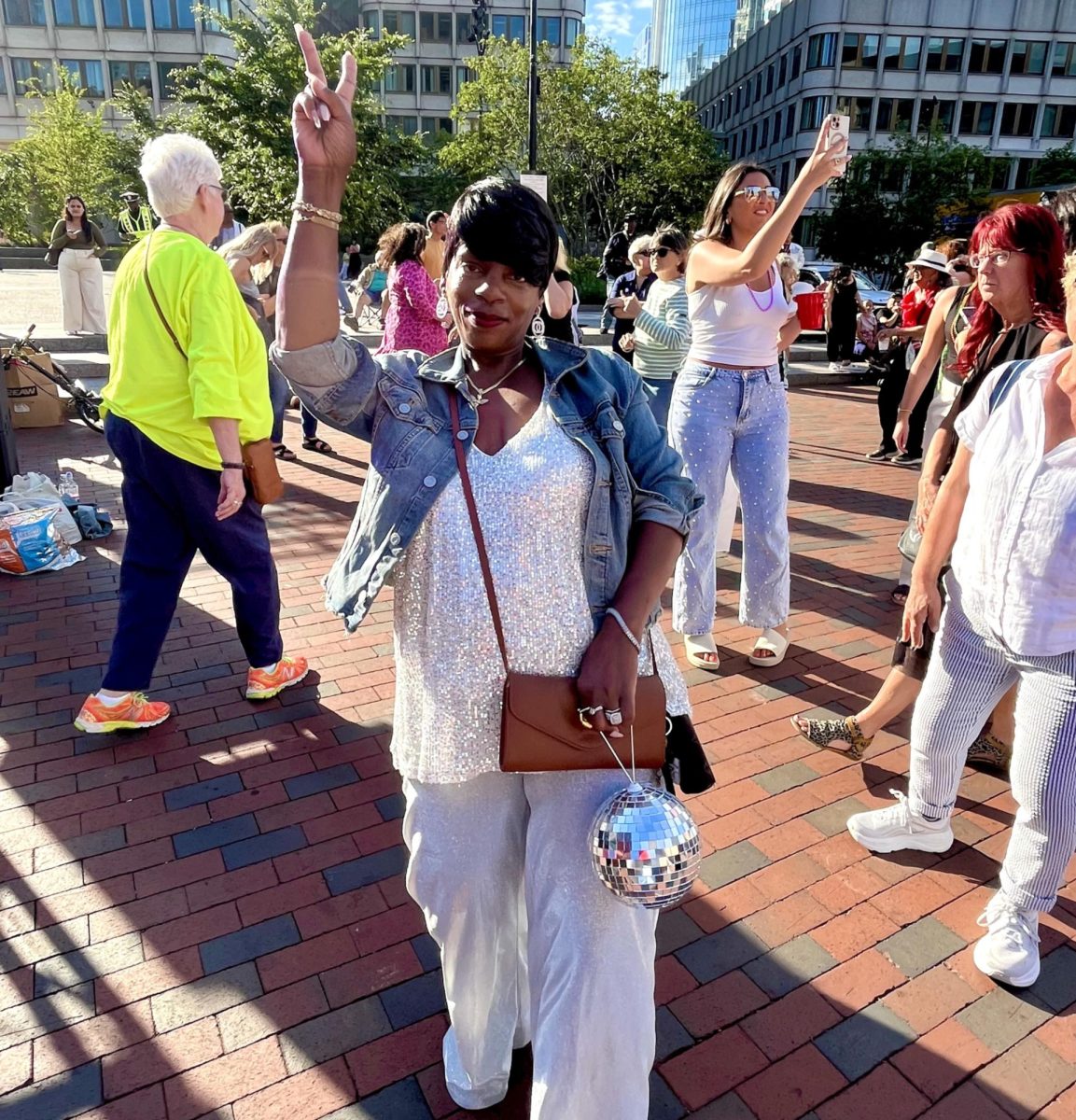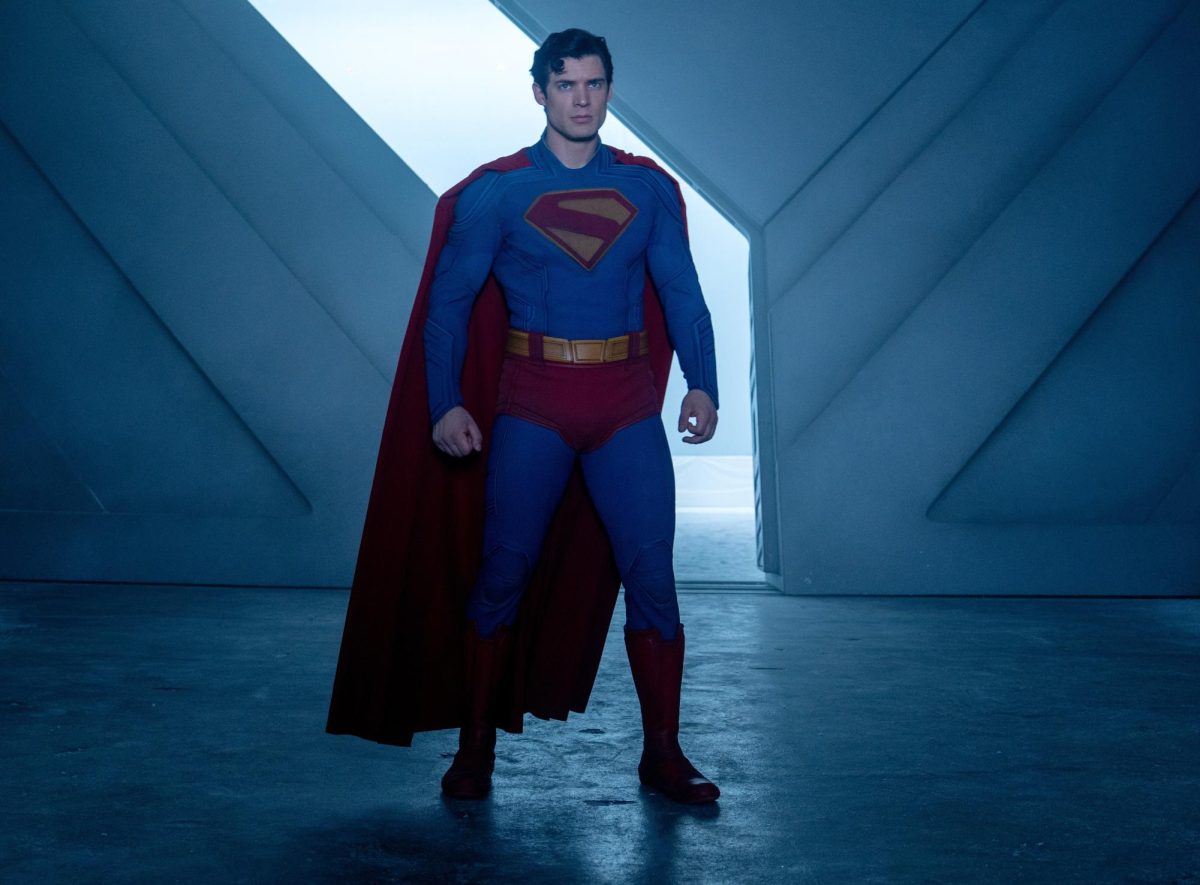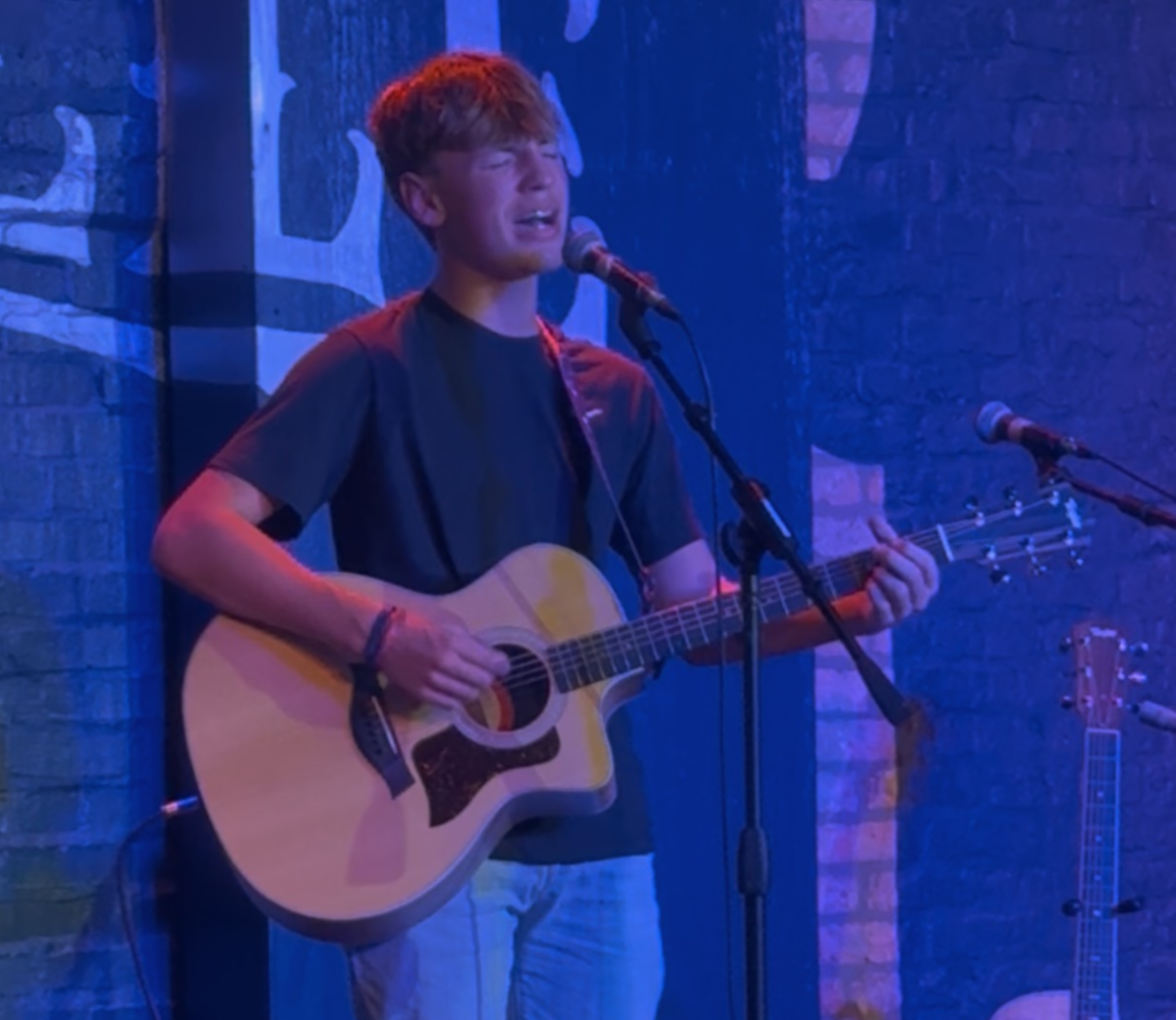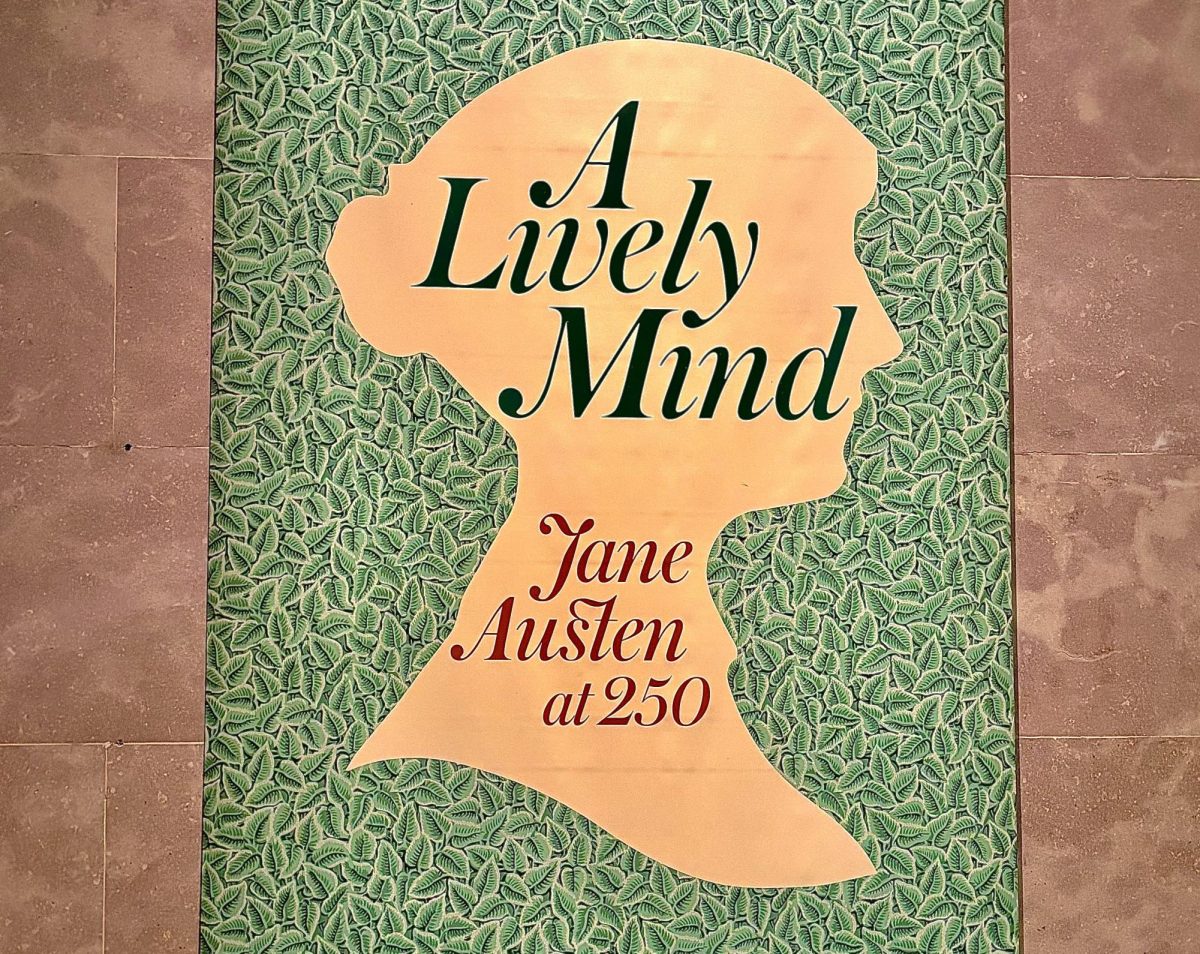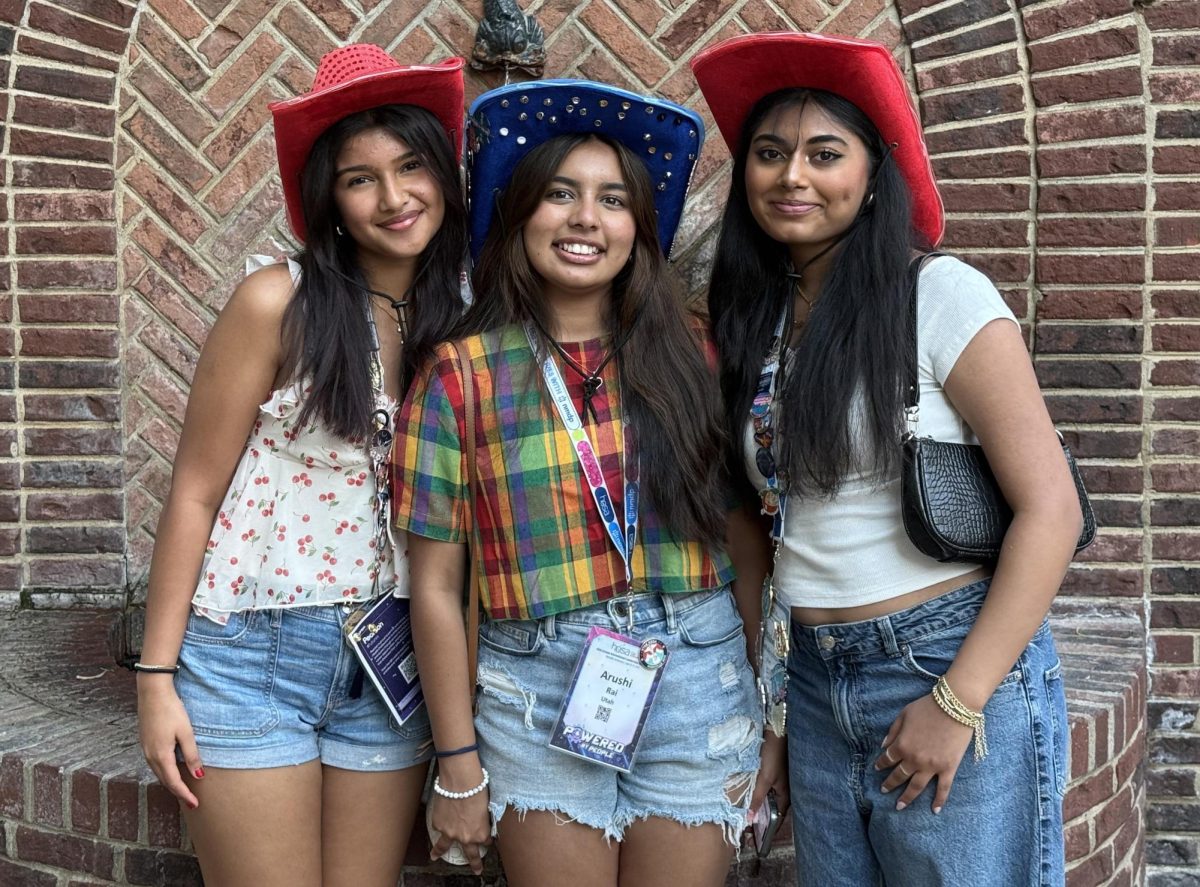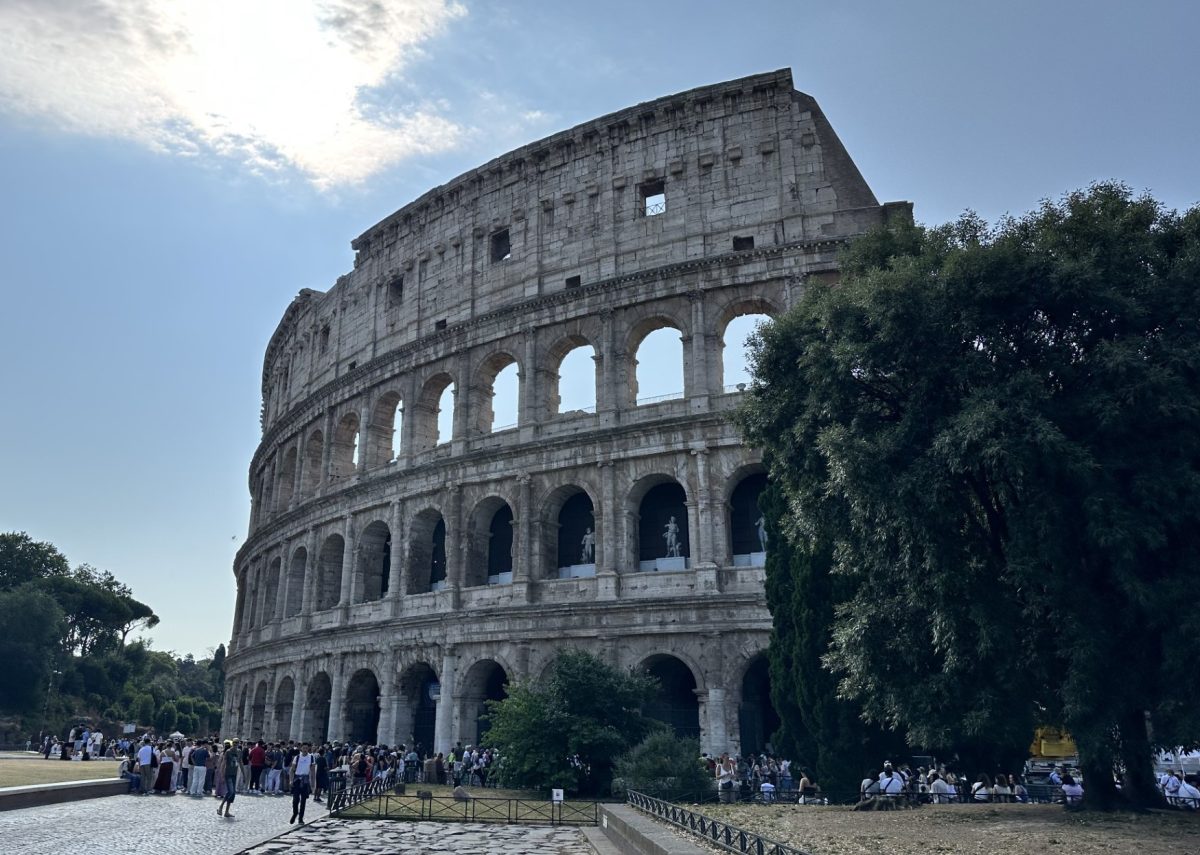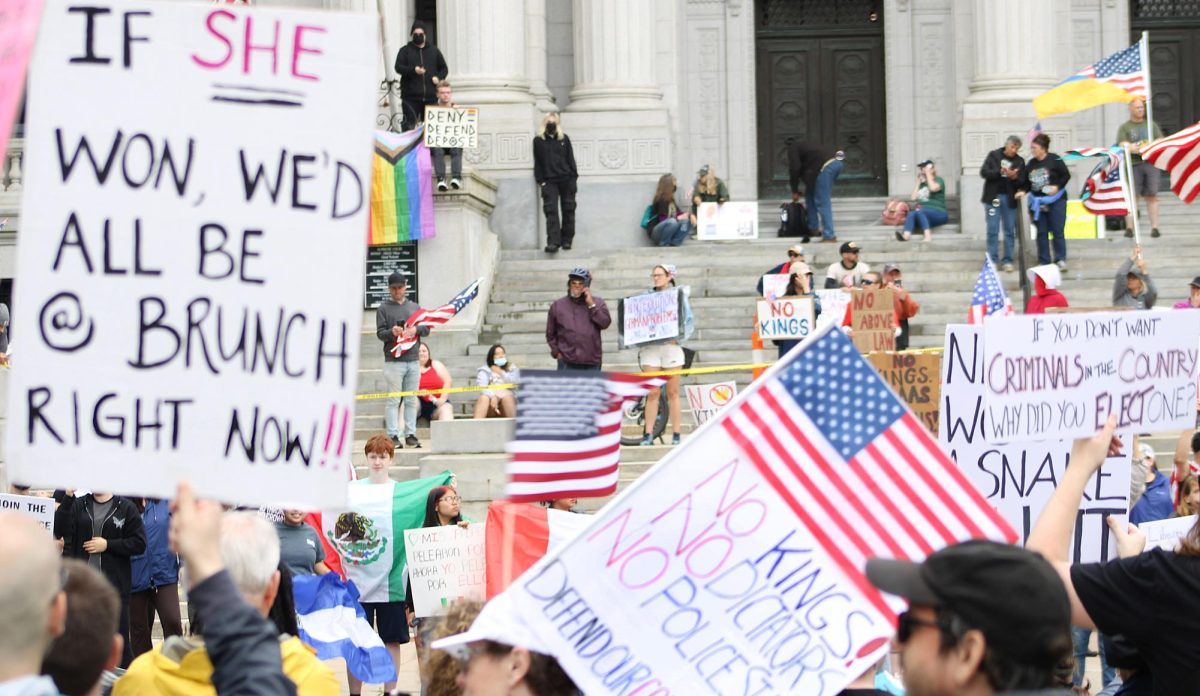State politicians urge millennials to get involved
At NCSL Legislative Summit politicians work on engaging disillusioned youth
Nancy Todd (right), a state Senator from Colorado, poses with a reporter at the National Conference of State Legislators’ 2017 Legislative Summit at Boston Convention Center in August.
August 24, 2017
“What millennials have to understand is that they cannot disengage. They have to stay engaged, and they have to figure out what their mission is,” said Representative George Brown in an interview.
Millennials, however, are currently finding it difficult to engage in politics. Earlier this month, thousands of state legislators from across the country convened in Boston for the National Conference of State Legislatures’ 2017 Legislative Summit. The issue of youth satisfaction repeatedly arose.
“It’s awful out there,” said keynote speaker Frank Luntz, an acclaimed political consultant and pollster.
He emphasized how in the current climate, today’s youth is growing increasingly disillusioned with the state of politics, and is now more distrustful of capitalistic systems than ever before.
Colorado Senator Nancy Todd, a Democrat, said, “I think that [young] folks are saying, ‘We’re tired of the partisanship; we’re tired of people bickering over all the differences, as opposed to coming together for solutions.’ ”
Regardless, in interviews, state politicians stressed the importance of young people remaining engaged despite their disappointment.
“We’re all in this boat together,” said Brown, a Democrat from Kentucky. “Millennials and those of us who are over 60 … male, female, Christians, Jews, and Muslims… All of us are in this boat, and there’s a hole in the boat. And all of us are pointing at this hole and saying, ‘Somebody ought to do something about that hole!’ Understand that if nobody does anything about that hole, we’re all gonna drown.”
Senator Louis Pate (R-N.C.) emphasized the importance of voting, saying the key to millennial satisfaction “is to elect the people that they feel like would best represent them into all of this… if they don’t like me, they can get someone else.”
“Only half the people in the country vote in the presidential election and only about 15 percent in local election.” said Representative Jay Kaufman (D-Mass.). “It’s easy to say, ‘Shame on our leaders,’ but shame on us for our irresponsible way of electing them.”
But why are young people failing to vote or be otherwise involved? Many politicians saw current education and communication methods as causes of youth disengagement. They emphasized the importance of effective education in the quest to get youth engaged.
“We probably need to start in elementary school,” said Democrat Mary Jane Wallner, the majority leader of the New Hampshire House of Representatives. “But we definitely need to start with civics education in high school; get the kids interested in what’s going on in the world and how they can be part of the solutions.”
Representative Stephen Meeks (R-Ark.) agreed.
“Right now, I know in our state, roughly only 30 percent of students are scoring proficient in civics. So a lot of [lack of youth involvement] is caused by a misunderstanding of how the government works. And a lot of that is our fault for not properly communicating how it works. [If we improved communication, they] would interact with us more.
“We [the legislators] need to start communicating and speaking to [young people] at their level, as opposed to our level, you know what I mean?” said Representative Earl Jaques (D-Del.). “We have a tendency to think about long-term things and legislation and how that’s gonna work, as opposed to how they see things.”
Meeks echoed that “it’s important for us as law makers to learn how to engage with millennials on [their preferred platforms, i.e. social media,] versus some of the older ways.”
Luntz also stressed the value of youth input in the legislation process.
“Students,” he said, should be “present at town hall education meetings,” to shed light on “what they’re not learning at school.”
In moving forward as legislators, Todd added that “Listening to our young people [can help us] figure out how we reshape some of the problem-solving, but how we also reshape some of the solutions.”
The legislators all seemed to have the same message to today’s youth; “Get involved,” as Wallner put it. Few, however, had clear ideas to address young people’s disillusionment with the current political climate, which has caused the lack of involvement in the first place. Improved communication and education may do wonders for youth awareness, but what are the anecdotes for the widespread distrust of politicians and of existing social systems?
Moving forward, said Kaufman, “My hope is that the election of 2016 — as we look back on it 20 years from now — we look at as having been a major wake-up call to our responsibilities as citizens.”
Indeed, Wallner noted that since the 2016 election, “in New Hampshire, recently our young Democrats have just been so energized. They’ve been recruiting young candidates to run, they’re canvassing, they’re having meetings. They’re really, really energized. And I think we need to do more of that with our young people.”
Perhaps in this way, the 2016 election, which has been the catalyst of much of the millennials’ disillusionment, will prove to be a positive motivator for youth.
In these difficult and often distressing times, Todd urged young people to “Hold accountable the people that say they’re representing you.”
–Aug. 24, 2017–

